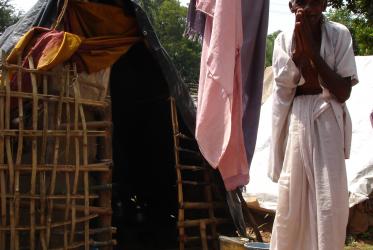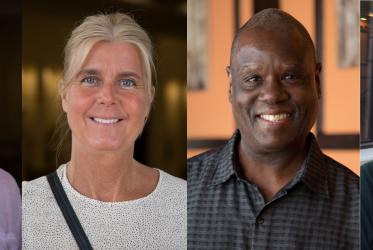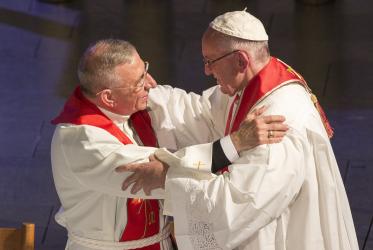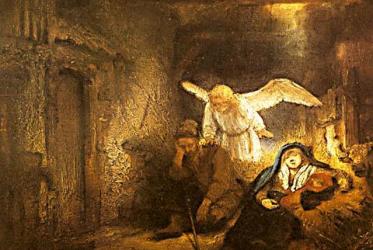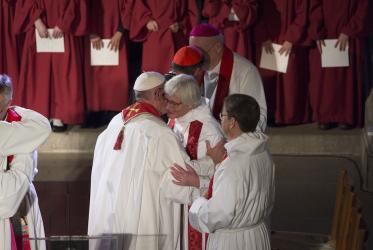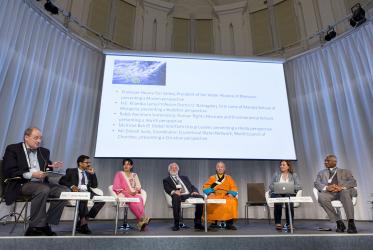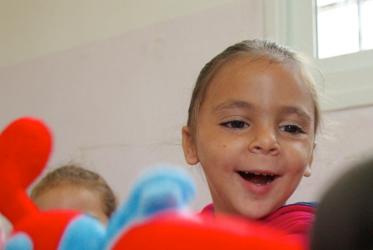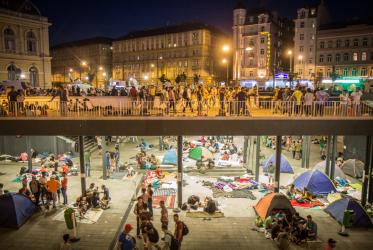Displaying 41 - 60 of 73
11 January 2018
Trying to do good for the world
18 December 2017
WCC expresses support for Swedish ban on nuclear weapons
19 September 2017
Peace consultations of hope
07 July 2017
WCC general secretary extends prayers for Stockholm
07 April 2017
Second Bible study on stateless persons available for Advent use
08 December 2016
WCC Executive Committee commends Reformation dialogue
28 November 2016
Pilgrimage and youth
28 June 2016
WCC/UN conference calls for coordinated action on refugee crisis
20 January 2016
European churches encouraged to work together to address refugee crisis
10 September 2015
WCC urges responsibility for and support to the refugees in Europe
04 September 2015
